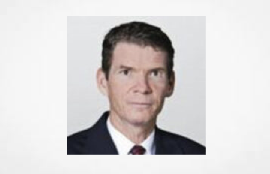Tampa Bay Times
In explaining why four South Florida attorneys were suspended by the state Supreme Court last month, you’d run across an attempted overbilling of $100,000, a $2 million bank account and $40,000 of possibly misappropriated funds.
In alphabetical order:
Curtis Alva, West Palm Beach (Header Image)
According to the referee’s report, Daniel McCool, president of car paint repair company Dr. ColorChip, hired West Palm Beach’s Curtis Alva (admitted to the Florida Bar in 1999) in September 2016 to handle a company dispute.
Dr. ColorChip would pay $400 per hour for Alva’s time, $100 per hour for paralegal time and, if litigation was required, a $25,000 monthly retainer due within 10 days of billing. After 10 days, that retainer would be applied to unpaid invoices. The unapplied retainer would be refunded after Alva finished his work for Dr. ColorChip. All changes to this agreement had to be in writing and signed by both sides.
All went well until the December 2017 invoice that Alva sent on Jan. 9, 2018, billing $25,040 for 66.8 hours of work. McCool emailed Alva on Feb. 5, 2018, that Dr. ColorChip needed to review the bill. McCool told an employee to review it. The employee emailed seven questions about the December 2017 invoice to Alva on Feb. 16, then sent a follow-up email on Feb. 21 when she didn’t get an answer.
The referee’s report said Alva sent a Feb. 21 email saying he’d answer the questions if they were being asked in good faith and if Dr. ColorChip paid $18,240 toward the December invoice. Otherwise, Alva stated according to the referee’s report, “he would not believe they were questioning the bill in good faith.
“He also informed the clients that he would either enforce the contract as written and seek the $25,040 or charge the clients a higher rate which would result in a $125,000 bill,” the state Supreme Court said. “(Alva) warned that if he believed there was no good faith on the clients’ part, he would make a claim for bad faith misrepresentation, and punitive damages, seeking treble damages in the amount of $375,000.”
A Feb. 26 invoice from Alva billed $126,650, billing an extra $150 per hour for his time and $25 per hour for paralegal time for all the 1,032.5 hours spent on Dr. ColorChip.
“The effect of this bill was to retroactively and unilaterally increase the hourly rate, above that in the engagement letter, for all the work (Alva’s) firm previously performed and for which the clients had previously paid,” the state Supreme Court said. “The engagement letter between the parties did not provide for this penalty.”
Dr. ColorChip paid the December 2017 invoice, but Alva insisted the company still owed $101,834. The state Supreme Court said Alva argued that not paying the December 2017 invoice within 10 days of getting it opened the door to him demanding “restitution in the form of retroactive hourly billing.”
The court said, “We disagree. While restitution is an available remedy for breach of contract, the proper place to seek such a remedy is in civil court.”





